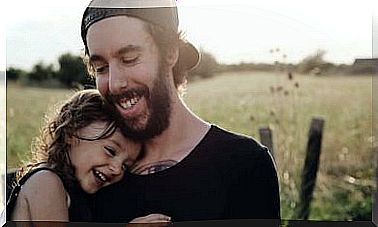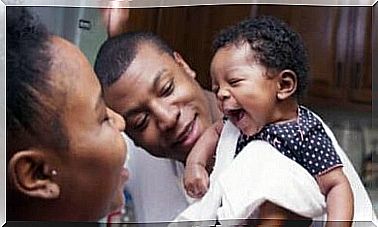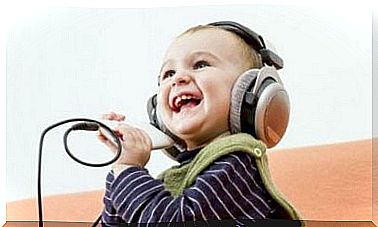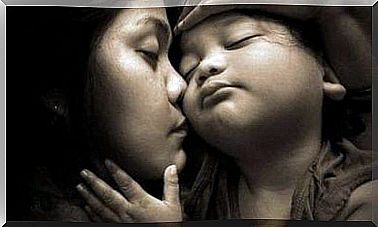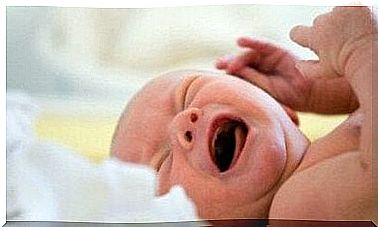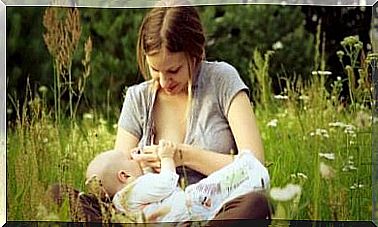Your Newborn’s Reflexes

A large part of babies’ physical actions during the first weeks are automatic reflexes. For example, if you put your finger in their mouth, they will suck on it. If there is bright light, they will squint their eyes. These are automatic responses known as your newborn’s reflexes. Some reflexes last for a few months, while others disappear within a few weeks.
Your newborn’s reflexes
We will now explain more about your baby’s reflexes so that you will understand why your baby has them and what they all mean. This makes it easier to understand your baby.
search reflex
In some cases, these reflexes become voluntary actions over time. For example, your baby is born with a search reflex; they will turn their heads if you touch their cheek.
This is a reflex that helps your baby find my mother’s nipple. At first he just looks back and forth, but as time goes by he can move his head to get into position.
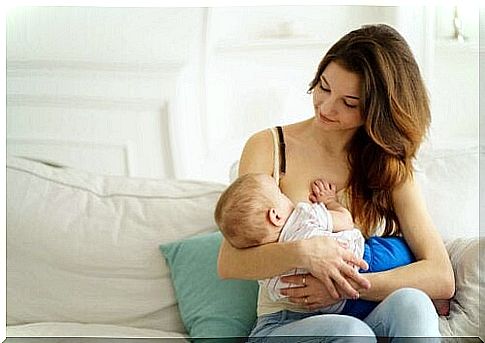
sucking reflex
Sucking is another survival reflex that a baby has before birth. You may have seen this reflex on ultrasounds of your baby when he was sucking his thumb. When you breastfeed him after birth or put a pacifier in his mouth, it hits his palate and your baby automatically starts sucking.
This reflex actually occurs in two steps:
- He places his lips around the areola and squeezes the nipple between his tongue and palate.
- He then starts to suck, moving the tongue from the areola to the nipple.
Coordinating these rhythmic sucking movements with breathing and swallowing is relatively difficult for a newborn. So even though it’s automatic, it doesn’t mean all babies can do it right from the start.
However, after some practice, this reflex becomes a skill that all babies master well. Your baby will also start doing this movement to comfort itself. Therefore, he will also feel comfortable having a pacifier or sucking his thumb.
The moro reflex, one of the reflexes of a newborn baby
Another reflex of newborns during the first weeks of life is called the moro reflex. If your baby’s head changes position abruptly or if he is startled by a loud noise, he will respond by stretching his arms, legs and neck. His facial expression changes in fear and he quickly puts his arms back together. He may also be crying.
This reflex, which is present in different degrees in every baby, is most visible in the first month and disappears after the second month of life. This reflex will disappear completely without you realizing it.
pinch reflexes
You’ll also notice a reflex when you stroke your baby’s palm – he’ll squeeze your finger right away! You can also caress the sole of his foot, you will see that he tightens his foot and curls his toes.
In the first few days after birth, your baby’s grip will be so strong that it seems like he can hold heavy objects. Don’t try this out though, because he’s not ready for that yet. Your baby has no control over this reaction and may suddenly let go.
One of the most interesting reflexes: the asymmetric tonic reflex
One of the most interesting reflexes is the asymmetrical tonic neck reflex. You may notice that when your baby turns his head to one side, his arm extends on that side and bends the other arm.
However, don’t be surprised if your baby doesn’t have this reflex. It’s a subtle reflex and if your baby is upset or crying, he may not do it. This reflex disappears when a baby is between five and seven months old. Even if your baby does, it may go unnoticed.
The automatic walking reflexes
Another special reflex in babies is the walking reflex. They can’t support their own weight, but if you hold them under their arms (don’t forget to hold the head too) and their feet touch a flat surface, they will put one foot in front of the other as if they are going to walk.
This reflex disappears after two months. However, it will return again, but in the form of a voluntary action. This is what will get them on the road to really walking towards the end of their first year of life.
In short, while you may have thought that babies are completely dependent, they actually have some reflexes that protect them. For example, if an object comes directly at your baby, he will still turn his head to try to avoid it.
Babies are of course completely dependent on their parents for their development, growth and nutrition. But these reflexes help them perform certain survival reflexes, such as sucking.
